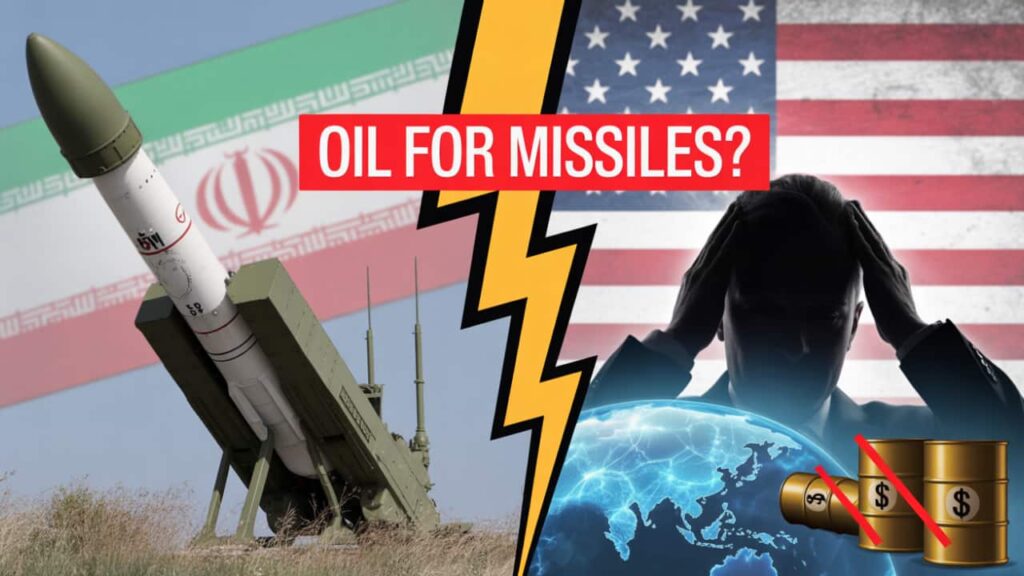In a bold geopolitical move, the Iran China missile deal has been confirmed by multiple intelligence sources, marking a significant escalation in military cooperation between the two U.S.-sanctioned nations. The delivery of advanced HQ-9B surface-to-air missile systems from China to Iran—executed within days of a ceasefire between Iran and Israel—signals a major shift in regional defense capabilities and global alliances.
Table of Contents
Iran China Missile Deal Bypasses U.S. Sanctions
The deal defies years of U.S. sanctions designed to isolate Iran from accessing high-tech weaponry. According to Arab diplomatic sources, the HQ-9B missile batteries were shipped covertly through Malaysia as part of a complex barter agreement. Iran paid for the systems not with cash, but with oil—circumventing international banking restrictions tied to U.S.-enforced sanctions.
This barter-based Iran China missile deal shows how two of America’s key rivals are working together to create alternative financial and military frameworks outside Western control.
Missiles Delivered After Israeli Strikes Cripple Iranian Defenses
The timing of the Iran China missile deal is strategic. It comes just days after Israel completed a 12-day military operation that crippled large portions of Iran’s air defense grid. Israeli F-35 fighter jets destroyed dozens of radar installations, temporarily giving Israel complete aerial superiority over Iranian territory.
Iranian command centers were also struck, with key military figures reportedly killed. The urgent need to restore air defense capabilities is believed to have fast-tracked the HQ-9B system delivery from Beijing.
What Is the HQ-9B System?
The HQ-9B is China’s answer to the Russian S-300 and American Patriot missile systems. It’s capable of targeting:
- Stealth aircraft
- Cruise missiles
- Tactical ballistic missiles
Military analysts say the HQ-9B systems will allow Iran to detect and potentially neutralize future Israeli or U.S. air operations in the region. By entering into the Iran China missile deal, Tehran has acquired a significant boost in its defensive capabilities.
China’s Role in the Iran China Missile Deal
China’s involvement is not limited to weapons supply. The Iran China missile deal is part of a broader partnership under their 25-year strategic cooperation agreement. China now imports nearly 90% of Iran’s crude oil exports, often through backdoor channels to avoid triggering secondary U.S. sanctions.
In return, China has committed to supporting Iran’s military modernization. The HQ-9B delivery is viewed as a tangible fulfillment of that support.
Chinese Foreign Minister Wang Yi recently criticized Israel’s actions against Iran, calling them a “blatant violation of sovereignty.” China has yet to officially acknowledge the missile deal, but experts believe the country is maintaining strategic ambiguity while increasing its influence in the Middle East.
U.S. and Regional Reactions to the Iran China Missile Deal
The Iran China missile deal has sparked concern in Washington. Secretary of State Marco Rubio is reportedly reviewing options to impose new sanctions on Chinese companies facilitating the weapons trade.

Arab states, particularly those aligned with the U.S., are also alarmed. Defense experts warn that this deal may trigger a regional arms race as other nations begin seeking similar upgrades to counter Iran’s renewed strength.
Iranian Deputy Foreign Minister Abbas Araghchi thanked Beijing for its ongoing support and stressed that Iran will continue to strengthen ties with China “in all fields, including defense.”
Strategic Implications of the Iran China Missile Deal
The Iran China missile deal is more than a military transaction—it’s a declaration of intent. It suggests:
- A growing China-Iran axis challenging Western dominance in the region
- A breakdown of the effectiveness of U.S.-led sanctions regimes
- The emergence of a parallel geopolitical order where power is redistributed eastward
For Iran, the deal represents a lifeline that allows it to rebuild its air defenses without relying on domestic production. For China, it’s an opportunity to assert its global influence, secure energy supplies, and back a key regional ally.
Conclusion
The Iran China missile deal marks a new phase in Middle East geopolitics. It highlights the weakening grip of American sanctions and the emergence of new power structures centered on China’s global ambitions. With Iran’s air defenses now significantly upgraded and China openly backing Tehran, the strategic balance in the region is shifting—perhaps permanently.
Frequently Asked Questions (FAQ)
What is the Iran China missile deal?
It refers to China supplying Iran with advanced missile defense systems, specifically the HQ-9B, in exchange for crude oil, bypassing U.S. sanctions.
Why is the Iran China missile deal significant?
It undermines U.S. sanctions, strengthens Iran’s air defense, and signals growing China-Iran military cooperation.
How did Iran pay for the missiles?
Through a barter system using oil, routed via Malaysia to avoid detection and enforcement mechanisms tied to U.S. sanctions.
How has the U.S. responded?
The U.S. is considering new sanctions on Chinese firms and intermediaries involved in the deal.
Will this deal escalate tensions in the Middle East?
Likely. It may lead to an arms race, particularly if other countries feel the need to counter Iran’s upgraded capabilities.
🔗 For more geopolitical analysis, visit www.documentarytimes.com
Aviator India download for players using UPI & Paytm